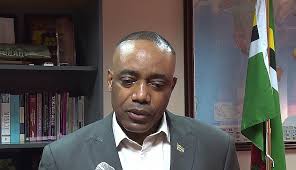By Ravi Nanga
ON the last occasion we examined the general objectives of the Case Management Conference and looked at some of the general powers that the court possessed and which were exercised by the Court in case managing a matter.
This week we will look at the specific powers that a court possesses when managing a matter before it at a case management conference.
When a matter comes before a court at a case management conference, the court has the power to transfer a matter from one court to another. For example, if a matter was filed in San Fernando, the court can transfer the matter to Port-of-Spain if it is more convenient or appropriate to deal with the matter in Port-of-Spain.

Under the rules there are various deadlines that the parties are expected to meet.
A Court has the power to extend or shorten the time period for compliance with the various rules.
The court has the power to consolidate matters. Sometimes parties, unknown to each other may file actions against each other that may be assigned to different judges. In such a case the court has the power to consolidate the matters so that one judge will hear both matters as they involve the same parties and the same issues.

The court also has the power to stay the proceedings if for example there are circumstances that dictate that the matter ought to be stayed. This applies to the entire matter or a particular aspect of the matter. For example, if a matter is filed, and there is another matter involving the same issues that is about to be determined, the court can stay the matter pending the determination of the matter which is about to be determined.
Further, the court may decide to deal with a preliminary issue and it may be convenient to stay the other issues in the matter, as dealing with the preliminary issue may determine the entire matter.
Under the rules a court is now empowered to determine a matter without the parties attending court.
This is usually done where it is a simple application that is being done by the consent of the parties, or where the court decides that it is not necessary to hear the parties.
Previously, under the old rules, the court did not have such a power, and the matter had to be listed before a court, no matter how routine the issue was.
The rules provide a number of steps that are necessary to be followed. If a party fails to follow a particular rule, depending on how serious the failure is, the court has the power to strike out the matter. This power applies to both the claimant and the defendant.
Further, the court can consider the documents that have been filed and determine whether the particular documents discloses grounds for either bringing the claim or defending the claim.
In the case of the claimant, if the statement of case does not disclose a cause of action or grounds for bringing a claim, the court can strike it out, and the matter is dismissed.
Similarly, if the defence does not disclose a basis for defending the claim, the defence can be struck out and judgment entered for the claimant.
As an alternative to striking out a claim or a defence, the court can order the respective party to provide particulars of their claim or defence in order to cure the deficiencies, so that they are not shut out of court.
It is only in very obvious cases, where there is clearly no claim or defence established and particulars will not assist, will there be an order striking out the particular document.
Where a party has failed to comply with a rule or an order of the court and there is a penalty involved for non-compliance, the court can permit the party to comply. In such a case the offending party will be required to apply for relief from sanctions, and there are strict criteria that are applied before a court can grant relief.
In cases where there is no penalty specified for non-compliance, and there is a failure to follow a particular rule or an error is made during the proceedings, the court has the power to put matters right and cure the non-compliance or the correct the error.
As can be appreciated, under the Civil Proceedings Rules, the court’s powers are extremely wide and allows a court to efficiently deal with a matter in order to determine matters.
Ravi Nanga is an attorney-at-law
[Please note that this article is intended only to provide general information on the topic being addressed and should not be taken as providing legal advice. In order to be properly advised it will be necessary for an attorney to examine the relevant documents and obtain the necessary instructions before properly advising as to rights and obligations.]
![]()












